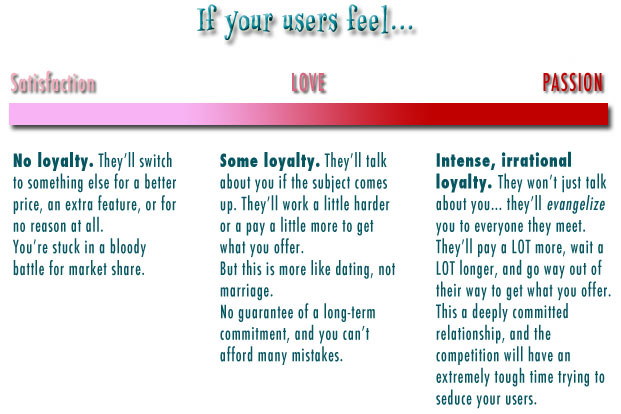
Freedom is a Mac OS X app that temporarily cuts off your network access so you can get work done. It disables wireless and ethernet networking on an Apple computer for up to three hours at a time, after which it re-enables your network, restoring everything as normal. The only way to circumvent Freedom during its imposed blackout is to reboot the machine; it’s believed that the hassle of rebooting will be enough to keep you doing it. Freedom is free as in beer, but if you find it useful, its makers encourage you to send a donation.
Cartoon Silhouettes
I’m installing the latest version of Ubuntu — version 8.04, a.k.a. “Hardy Heron” — using Wubi, the installer that lets you install Ubuntu directly from Windows. It’s a Windows app that retrieves and installs Ubuntu files and sets up a separate partition. As ITWire puts it, “No more burning a downloaded ISO image to CD. No more booting from the CD to install Ubuntu. No more disk partitioning decisions. No more Grub boot manager.” I’ll let you know how it goes.

Here’s a little story about customer service: while staying at a hotel villa in Disney World, Paul Campanale tossed away a cardboard container, not realizing that it contained his wife Karen’s engagement, wedding and five-year-anniversary rings. Employees at the hotel told Campanale that recovering the jewelry would be impossible, but executive housekeeper Drew Weaver realized that the trash from the Campanales’ villa wouldn’t have reached the compactor yet. Weaver and seven volunteers from staff put on protective clothing and went dumpster-diving — and found the rings.
I’m telling this story here, in a blog primarily aimed at techies in startups and small- to medium-sized companies, because it’s an excellent object lesson.
Those of us in small companies and startups often like to boast that one of the upsides of working at such a place is that you get to “wear many hats” or “play many roles” rather than just being siloed within the confines of your job description. However, I’ve seen on many occasions that as soon many of these boasters will often shy away from any customer-facing role because they see it as a miserable time-sink on par with meetings. It’s one of those times when you see so-called “small and agile” people suddenly revert to “big dinosaur” thinking and try to foist the burden onto someone else — someone’s whose job description is a closer match for the unwanted task: “Isn’t that marketing’s job? Or sales? Or maybe the receptionist can handle it.”
Sifting through the trash for something that a customer threw away out of absent-mindedness or distraction — some less charitable people I know who go so far as to say “stupidity” — could be seen as a low-value exercise. After all, the odds of finding the missing rings might have seemed low, the search could take a long time and occupy people who could be doing other things, and there was no profit to be made. A manager’s — and seven volunteers’ — willingness to perform an unpleasant task that probably wasn’t in their job description has probably earned the loyalty of the Campanales, who in turn have probably become life-long Disney resort evangelists. In fact, I’m certain that their evangelism is why I heard about their story, and also why you’re hearing about it now.
The lesson to take from all this? Everyone in a company, no matter how insulated from the outside world, is customer-facing. Make your customer feel special, and you’ll be special to them.
I’ll close with this chart from Creating Passionate Users, in which Kathy Sierra explains the difference between your customers feeling satisfaction, love and passion about your company:

Click the chart to see it with its original article on Creating Passionate Users.
[Found via Consumerist.]
Over at Signal vs. Noise, 37signals’ blog, David Heinemeier Hansson asks Are you sure you want to be in San Francisco? Here`s an excerpt:
If your idea for a web business is more along the lines of the mundane “product * price = profit” (3P) variety, I think the culture of San Francisco and that famous 20-mile radius around Stanford is anything but helpful. I might even go as far as say it’s downright harmful.
The flush availability of other people’s money is simply too tempting. When you’re not spending your own money, it’s easy to splash on a big open office on day one, a staff of 10+ in no time, and have few worries about paying the bills on the 1st of the month. It takes away much of the urgency to make money that I think is critical to build sustainable businesses. It gives you too many resources to be satisfied building simple tools for niche markets. Everything becomes about catching that huge wave.
I can vouch from personal experience that the line about what happens when you’re not spending your own money is so true. Buy me a beer and I’ll tell you about it.
Naturally, the question comes up: “If San Francisco, the Bay area, and Sillicon Valley aren’t good places to start a web business of the 3P variety, where is?”
David provides a quick list of cities where some interesting applications are being developed, which includes:
- Chicago (and originally, Copenhagen), home of BaseCamp
- New York, home of FogBugz
- Sydney, home of Campaign Monitor
- Ottawa, home of Shopify
- Austin, home of Blinksale
- Toronto, home of Freshbooks
I’m highlighting Toronto not only because it’s the city I call home, but also because there’s a strong small development shop community that’s been building up here over the past few years: we hosted one of the first BarCamps to follow the original, and created DemoCamp, CaseCamp and TransitCamp as well as the upcoming RubyFringe conference, which promises to be quite unlike any other developer conference out there. Toronto also offers some serious quality-of-life bonuses to techies, a very livable city with lots to do at night, Asian food aplenty (including three or four Chinatowns, depending on how you count ’em), a smart workforce and proximity to major cities in the United States (we’re about an hour away by plane from New York, Boston and Chicago).
Grand Theft Childhood is a new book written by Dr. Lawrence Kutner and Dr. Cheryl Olson, a husband-and-wife team who co-founded the Harvard Medical School Center for Mental Health and Media. In the video above, Drs. Kutner and Olson talk with X-Play’s Adam Sessler about some of the findings from the study documented in their book.
Some notes:
- Their study lasted several years and received $1.5 million in funding from the U.S. Department of Justice.
- In their study, they surveyed and interviewed over 1250 kids and 500 parents.
- There is “absolutely no evidence” that playing violent video games turns children violent.
- What’s more important are patterns of play — there are some that parents and teachers should note.
- In their research, Drs. Kutner and Olson tried to find out which videogame playing behaviours are normal, and which aren’t, a cataloguing of behaviours that did not previously exist in the literature on this topic.
- They debunked the experimental methodologies used by researchers who’ve made the vidogames-violence connection.
- One of the flaws in those older experiements was that it didn’t take short-term vs. long-term behavioural effects into account. He cited an example of boys’ horseplay after seeing an action film: it wears off pretty quickly.
- They found that both boys and girls who played M-rated or violent videogames exclusively more than 15 hours a week to be statistically more like to get into trouble, but they also found that boys who didn’t play videogames at all were also at greater risk.
- At least for boys, gaming is a marker of social competence.
- Consider the case of the Virginia tech shooter: although the pundits were quick to place the blame on videogames, he didn’t play them at all, and his dorm-mates said he wouldn’t play videogames with them.
- Kutner: “Kids who don’t play [videogames] at all are actually at greater risk for getting into trouble. It says something about their social relationships.”

